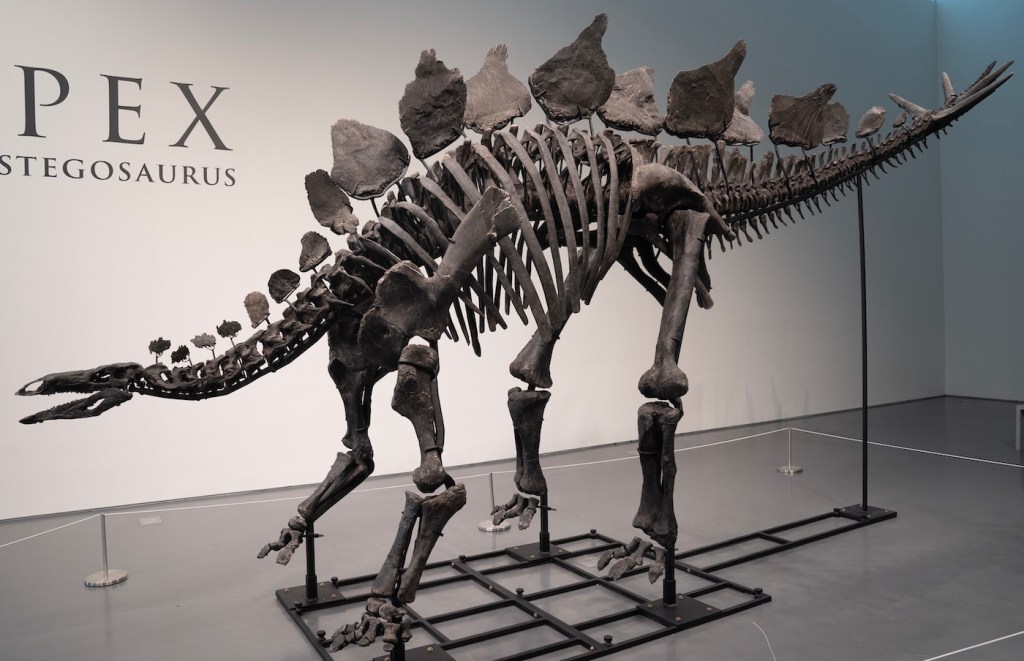
On July 17, the Stegosaurus Apex was auctioned at Sotheby’s in New York for a record sum of $44.6 million. The buyer was billionaire Ken Griffin, CEO of the hedge fund Citadel, who says he wants to loan the fossil to American institutions for display.
But despite Griffin’s statement, some paleontologists are not too happy about the trend of auctioning fossils.
The sale of dinosaur fossils has become increasingly lucrative in recent years, with eight of the ten most expensive fossils being sold in the last four years. This trend of rising sales prices means that museums and research institutions can no longer pay for fossils that could benefit paleontological research.
Paleontologists fear that the availability of fossils for research and even access to archaeological sites may decrease or be restricted as more fossils become privately owned.
SciFri guest host and producer Kathleen Davis joins Dr. Steve Brusatte, Professor of Palaeontology at the University of Edinburgh in Scotland, to discuss the potential scientific implications of fossil privatization and sales.
More information
Donate to science on Friday
Invest in high-quality science journalism by donating to Science Friday.
Donate
